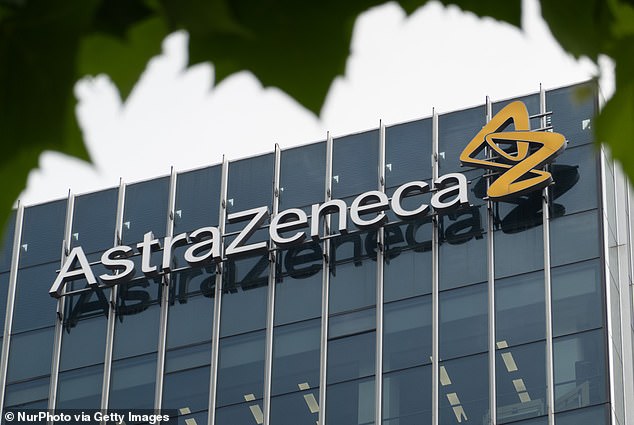Table of Contents
- Britain’s biggest pharmaceutical company said the drug had “failed to achieve statistical significance”
- This compares breast cancer survival rates to those receiving chemotherapy.
AstraZeneca has revealed that its experimental breast cancer drug failed to prolong survival in patients with the disease.
Britain’s largest pharmaceutical company said the trial focused on patients suffering from inoperable or metastatic breast cancer, with hormone receptor (HR) positive, low HER2 or negative.
The Cambridge-based company said the drug did not “achieve statistical significance” in terms of survival rates for breast cancer sufferers compared to chemotherapy.
AstraZeneca has revealed that its experimental breast cancer drug failed to prolong survival in patients with the disease.
The drug, called Datopotamab deruxtecan (Dato-DXd), was jointly developed by the British-Swedish group and Japanese global healthcare company Daiichi Sankyo.
More than two million people are diagnosed with breast cancer each year worldwide.
HR-positive, HER2-low or HER2-negative breast cancer is the most common subtype, accounting for more than 65 percent of diagnosed cases, according to AstraZeneca.
The news will be a blow to the FTSE 100 pharmaceutical giant, which said earlier this year it was targeting $80 billion in annual revenue by 2030.
Susan Galbraith, AstraZeneca’s executive vice president for oncology research and development, said the results showed the drug offered “clinical value.”
She said: “We will continue discussions with regulatory authorities and apply the insights gained from these results to our clinical development program for datopotamab deruxtecan in breast cancer.”
Ken Takeshita, Global Head of Research and Development at Daiichi Sankyo, added: “We are proud to have created a new standard of care for patients with metastatic breast cancer with Enhertu and remain committed to making datopotamab deruxtecan another potential option for patients who may benefit.”
In July, sales from AstraZeneca’s core oncology business rose 19 percent at constant exchange rates to $5.3 billion (£4.1 billion) and accounted for 41 percent of the total, while its rare disease and heart and kidney disease arms also posted double-digit growth.
However, the group’s second-quarter profit took a hit amid rising expenses and sales of cancer drugs Enhertu and Imfinzi were slightly weaker than expected, analysts said.
Earlier this month, AstraZeneca chief Pascal Soriot said the company is “working very closely” with China after the arrest of a handful of employees.
The company revealed that a “small number” of employees were under investigation in the country, where it made £4.5bn of revenue last year, or 13 per cent of its total.
Chinese authorities are investigating whether AstraZeneca violated privacy laws by collecting patient data as well as distributing a liver cancer drug that has not been approved in mainland China.
AstraZeneca shares fell 2 percent to 11,536 pence in early afternoon trading on Monday.
DIY INVESTMENT PLATFORMS

AJ Bell

AJ Bell
Easy investment and ready-to-use portfolios

Hargreaves Lansdown

Hargreaves Lansdown
Free investment ideas and fund trading

interactive investor

interactive investor
Flat rate investing from £4.99 per month

Saxo

Saxo
Get £200 back in trading commissions

Trade 212

Trade 212
Free treatment and no commissions per account
Affiliate links: If you purchase a product This is Money may earn a commission. These offers are chosen by our editorial team as we believe they are worth highlighting. This does not affect our editorial independence.


